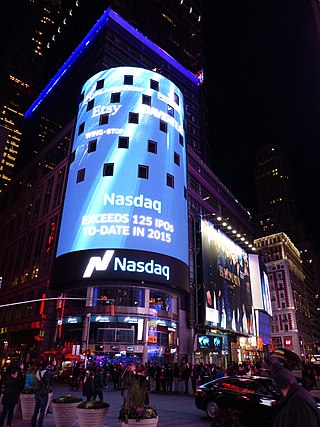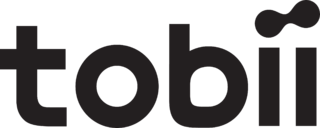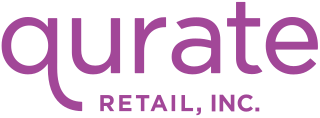
The Nasdaq Stock Market is an American stock exchange based in New York City. It is the most active stock trading venue in the U.S. by volume, and ranked second on the list of stock exchanges by market capitalization of shares traded, behind the New York Stock Exchange. The exchange platform is owned by Nasdaq, Inc., which also owns the Nasdaq Nordic stock market network and several U.S.-based stock and options exchanges. Although it trades stock of healthcare, financial, entertainment, retail, and food businesses, it focuses more on technology stocks. The exchange is made up of both American and foreign firms, with China and Israel being the largest foreign sources.

Cypress Semiconductor Corporation was an American semiconductor design and manufacturing company. It offered NOR flash memories, F-RAM and SRAM Traveo microcontrollers, PSoCs, PMICs, capacitive touch-sensing controllers, Wireless BLE Bluetooth Low-Energy and USB connectivity solutions.

Webex by Cisco is an American company that develops and sells web conferencing, videoconferencing and contact center as a service applications. It was founded as WebEx in 1995 and taken over by Cisco Systems in 2007. Its headquarters are in San Jose, California.

Nasdaq, Inc. is an American multinational financial services corporation that owns and operates three stock exchanges in the United States: the namesake Nasdaq stock exchange, the Philadelphia Stock Exchange, and the Boston Stock Exchange, and seven European stock exchanges: Nasdaq Copenhagen, Nasdaq Helsinki, Nasdaq Iceland, Nasdaq Riga, Nasdaq Stockholm, Nasdaq Tallinn, and Nasdaq Vilnius. It is headquartered in New York City, and its president and chief executive officer is Adena Friedman.

Augmentative and alternative communication (AAC) encompasses the communication methods used to supplement or replace speech or writing for those with impairments in the production or comprehension of spoken or written language. AAC is used by those with a wide range of speech and language impairments, including congenital impairments such as cerebral palsy, intellectual impairment and autism, and acquired conditions such as amyotrophic lateral sclerosis and Parkinson's disease. AAC can be a permanent addition to a person's communication or a temporary aid. Stephen Hawking, probably the best-known user of AAC, had amyotrophic lateral sclerosis, and communicated through a speech-generating device.

Terayon Communication Systems, Inc. was a company that vended equipment to broadband service providers for delivering broadband voice, video and data services to residential and business subscribers.
Maxim Integrated, a subsidiary of Analog Devices, designs, manufactures, and sells analog and mixed-signal integrated circuits for the automotive, industrial, communications, consumer, and computing markets. Maxim's product portfolio includes power and battery management ICs, sensors, analog ICs, interface ICs, communications solutions, digital ICs, embedded security, and microcontrollers. The company is headquartered in San Jose, California, and has design centers, manufacturing facilities, and sales offices worldwide.

Sogou, Inc. is a Chinese technology company and subsidiary of Tencent.

Speech-generating devices (SGDs), also known as voice output communication aids, are electronic augmentative and alternative communication (AAC) systems used to supplement or replace speech or writing for individuals with severe speech impairments, enabling them to verbally communicate. SGDs are important for people who have limited means of interacting verbally, as they allow individuals to become active participants in communication interactions. They are particularly helpful for patients with amyotrophic lateral sclerosis (ALS) but recently have been used for children with predicted speech deficiencies.
A revoicer provides communication assistance by carefully listening to the speech patterns uttered by an individual with a speech disability, using lipreading (speechreading) and attention to other cues if necessary for full understanding of the utterances, and then repeats the same words in a manner that is more clear and understandable to the listener. Revoicers generally have excellent skills in auditory phonetic/phonemic pattern recognition, similar to those utilized by a court reporter or stenographer, to identify the sounds of speech of the speaker.

Tobii AB is a Swedish technology company that develops and sells products for eye tracking and attention computing.
Xperi Inc. is an American multinational technology company headquartered in San Jose, California, that develops software for consumer electronics and connected cars, as well as media platforms for video service over broadband. The company is organized into four business units: Pay-TV, Consumer Electronics, Connected Car, and Media Platform. Xperi's brands include DTS, HD Radio, and TiVo.

SolarEdge Technologies, Inc. is an Israeli company that developed a DC optimized inverter system.
A letter board may refer to two devices.
Genasys Inc. is based in San Diego, California. Its long-range acoustic device (LRAD) products are used for long-range acoustic hailing and mass notification. Its software-as-a-service product suite, the Genasys Protect Platform, that includes ACOUSTICS, ALERT, CONNECT, and EVAC, is used for emergency alerting, notifications, evacuations, secure collaboration, and repopulations. The company was previously named American Technology Corporation (ATC) until 2010 and LRAD Corporation until 2019. The company's stock trades on the NASDAQ Capital Market with the ticker symbol "GNSS".

Qurate Retail, Inc., also known as Qurate Retail Group, is an American media conglomerate controlled by company chairman John C. Malone, who owns a majority of the voting shares.
Long Blockchain Corp. is an American corporation based in Farmingdale, Long Island, New York. Its wholly owned subsidiary Long Island Brand Beverages, LLC produced ready-to-drink iced tea and lemonade under the "Long Island" brand. The company's first product was made available in 2011.
Mbogo, Ethan (2014-09-03). "USAA and Mitek Settle Lawsuit". GlobeNewswire News Room. Retrieved 2023-11-29.
Phunware Inc. is an American mobile software and blockchain company. It produces mobile applications for advertising and marketing purposes such as personalized ad targeting, location tracking, and cryptocurrency brand loyalty programs.










